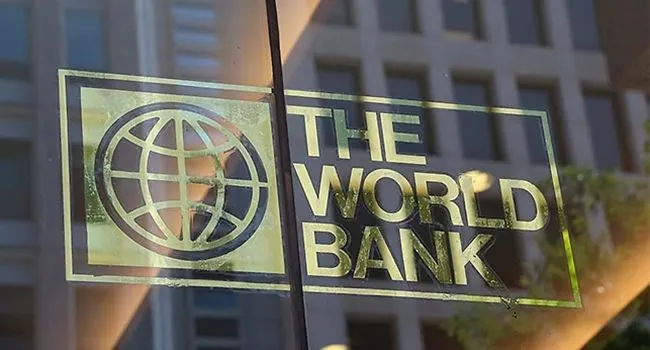For those querying the rationale behind the rush to pass the tax reform bill, I say look no further—the World Bank loans approved in June 2024 are to blame. Some may recall that the World Bank announced in June 2024 that two loans worth 2.25 billion US dollars had been approved for Nigeria under two new programmes. These loans were approved based on the agreement that Nigeria will increase VAT rate to “at least” 12.5 per cent by 2026.
These programmes will have negative implications for the country, leading to inflation. It is surprising that a government struggling with a 34 per cent inflation rate would agree to these terms. But before we discuss the consequences, let’s discuss some details of the loan, including the actions to be taken.
The first, ‘Accelerating Resource Mobilisation Reforms’ (AMOR), is worth 750 million US dollars. It is a programme for results with disbursed linked indicators. To my knowledge, no detailed information on the World Bank website shows any disbursement or financial agreement for the AMOR programme.
The second loan, 1.5 billion US dollars, is under the ‘Reforms for Economic Stabilisation to Enable Transformation’ (RESET) programme. Under this programme, two World Bank agencies—the International Development Association (IDA) and the International Bank for Reconstruction and Development (IBRD)—share the financing of 750 million US dollars each.
- According to the World Bank’s website, the RESET loan of 1.5 billion US dollars is active. IDA disbursed all 750 million USD of the RESET loan on June 28, 2024. IBRD claimed its front-end fee—a payment made at the beginning of a financial arrangement—of 1.875 million US dollars on June 26, 2024. These transactions happened without the Senate announcing approval unless they were done in secrecy.
The costs of these loans are also different. Nigeria will pay an 8.33 per cent interest rate on half of the loan under IDA, which will commence between 2030 and 2036. For the other half, with IBRD, the payment will begin in 2035 and end in 2048 at 3.85 per cent.
These 8.33 per cent and 3.85 per cent interest rates are too high for a World Bank loan to a low-middle-income country like Nigeria. The loans reflect non-concessional terms stipulated under the Fiscal Responsibility Act of 2007. Concessional loans from the IDA typically have 0% interest, a 40-year repayment period, and a 10-year grace period to ease the financial burden. Ironically, these rates contradict the fiscal laws outlined in the Fiscal Responsibility Act. This also contrasts with the World Bank’s principle of providing affordable financing for development.
In all seriousness, this is not a rate designed to help a country seeking to build a fiscal space. But my sympathies or suspicions lie with the administrators of this Tinubu-led government who sought this loan. But that’s not it.
The worrying part comes under the actions to be taken under the programme. They are divided into two pillars. Pillar 1 is about building fiscal space, and Pillar 2 is about protecting the poor and economically insecure. I wrote about these in one of my previous columns in June, titled “Counterproductive World Bank Loan: Reasons to Reject.” The expenditure mainly duplicated existing projects because Nigeria has digitised its tax collection since 2015. We have the Integrated Tax Administration System (ITAS), e-filing Platforms, Tax Identification Number (TIN) System, Remita, Treasury Single Account (TSA), Payroll Management, e-payment Channels, Automated VAT Collection, and Electronic Tax Clearance Certificates, among a few others.
The fiscal trap is under item 2 of Pillar 1. The agreement reads, “To increase non-oil revenues and reform the VAT regime, the Borrower has submitted to the National Assembly a draft bill to progressively increase the VAT rate to at least 12.5 per cent by 2026 and allow input tax credits for capital and services.” This agreement is what is pushing the government to get the Tax Reform Bill passed.
As we are already in December, this agreement means the government will increase VAT rates by two-thirds within 12 months. Recall that the FIRS Chairman has proposed an increase of 33.3 per cent in 2025, from 7.5 to 10 per cent, some few days from now. They will then raise the VAT rates by “at least” another one-third to 12.5 per cent in 2026, which will have to be announced in December 2025. There will be consequences.
The VAT system in Nigeria covers all finished goods and services, with a few exemptions that hardly impact the average person. Given the present hardship, with the inflation rate touching 34 per cent, people will see a direct spike in the prices of all VAT-able items—the vast majority of consumer goods.
The scary part is that this will not be like the inflationary trends after the removal of fuel subsidy in June 2023, where the burden will be shared between many products. This impact will be directly felt on every product as soon as the announcement is made. Let us also not ignore that once people expect prices to rise, they will increase regardless of what the government does.
The immediate consequence is a reduction in total consumption. When people buy less, producers will be affected because their goods and services are not selling. This will press them to reduce the cost of production, including workers, which means higher unemployment in the country.
These expensive World Bank loans will only increase economic instability in an already volatile economy because the repayment period is in 2030. Nigeria will still be working through the VAT increase shocks. As many policymakers and experts have advised, the government should postpone approving this tax reform and consult much further.



